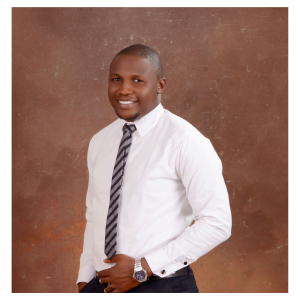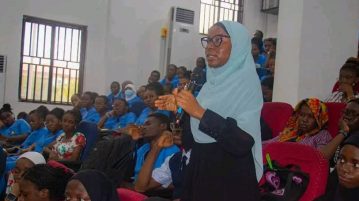Globally, residency training is an important path in the medical career pathway, designed to equip doctors with the advanced clinical skills, specialty knowledge, and professional competencies required to become specialists and practice independently in their chosen fields.
In Nigeria, this training is done in accredited institutions (usually public and private secondary- and tertiary-level facilities), such as teaching hospitals, federal medical centres, specialist centres, state-owned and general hospitals across the country, and is primarily overseen by the National Postgraduate Medical College of Nigeria (NPMCN) and the West African College of Physicians/Surgeons (WACP/WACS).
However, despite its importance and long-standing existence, the residency is not without its own problems and struggles, especially in the challenging Nigerian healthcare system. Hence, this interview with resident(s) in training aims to provide insight into the current state of residency, demystify it, clear misconceptions surrounding it and encourage people to look or go into this pathway.
Interviewer: Mary O. A. Awoniyi
MM: Can you briefly introduce yourself?
My name is Godwin Oyewumi, an Obstetrics & Gynaecology (OBGYN) resident at the University of Osun Teaching Hospital in Osogbo and I started residency in 2021.

MM: What motivated you to pursue a residency program in Nigeria, and how did you come to choose the specialty and faculty you are training in?
I figured out what I wanted for myself – which is, to be a Researcher/Academic in OBGYN – and I needed a sound clinical background as foundation. So, I went into residency to be grounded in the realities of the specialty and clinical practice in this clime. As well as achieve a broad perspective of the existing problems and possible research questions, as my research work will be focused here.
MM: Interesting. Since commencing your specialty training, what has been the highlights and most rewarding part of your experience so far?
I’ve now gotten a fairly rounded understanding of patients’ pain points, the peculiarities and lacunae of the health sector. The joy of providing succour to the several patients I’ve encountered is immense, especially knowing that I get to help and do what I can for my own people, most of whom have nowhere else to go.
MM: In Nigeria today, there are so many “hear-says” about residency. What are some common misconceptions that you’ve encountered, and how do you wish people could better understand the experience?
Honestly, many of things said on the streets about residency are quite true. So, the “hear-says” may not actually misconceptions. Residency is tough, demanding and gruelling. The pay is not commensurate, plus the many other background problems plaguing the health sector nationally and domestically in the respective training centres. However, I’ll say residency is what you make out of it, regardless of the prevailing problems.
Know yourself, and what you want for yourself and your career before venturing in. The reward is what you get out of it at the end.
MM: What are some of the current challenges encountered during residency training, and how do you think these can be managed by residents?
The same old problems: Infrastructural deficits, lack of adequate manpower, poor renumeration and welfare packages, poor funding for research and academic activities among many others.
MM: How do you balance the demands of residency training with personal life? what coping mechanisms do you use, and what self-care practices do you prioritize?
I make deliberate efforts to free up time for family and leisure. Every minute outside work counts and I maximize it. I try as much as possible to make the other parts of my life thrive, and that helps out a lot. The other things I do gives fulfillment and satisfaction, such as to cushion the toll of residency. Things like creative work, exercise, setting up a social enterprise among others.
Always having the end goal in focus and reminding myself that it’s only for a while helps me get through tough days.
MM: How do you see the future of specialty training in Nigeria evolving, and in what way can young doctors be well positioned for it?
I will speak in the direction of technological advancement; AI is definitely coming for us and would redefine a lot around here. We shouldn’t wrap ourselves up on the illusion that we are immune from being replaced or rendered redundant. We should embrace it and position ourselves to adopt and domesticate AI to our respective specialties and adapt to the times. Same for robotics, especially in surgical specialities.
Essentially the face of research and clinical practice will evolve inevitably. We must be prepared.
MM: What advice would you give to junior residents who are just starting out in their programs?
Apply yourself clinically and never neglect the academic aspect. Academics is the core of residency. Being a sound academic and researcher gives an edge and makes you an authority figure in your field.
MM: What message would you like to convey to potential applicants who may be hesitant or unsure about pursuing a residency program?
Think it through, know what you want, count the costs and go for what works best for you.
MM: On a scale of 1-10, rate your own residency experience?
7-ish. Can’t wait to be done though
MM: If you could go back in time, would you still make the same decision in terms of specialty choice and training centre?
Same specialty most definitely, but maybe a different centre.
MM: Out of curiosity, what different centre would you have looked at or advice for training?
Really, no centre in particular. It all depends on personal goals. I would have loved a centre more inclined towards research and academics, coupled with sound clinical training. Some others might prioritize hands-on clinical experience. So, these priorities would determine the centre of choice.
MM: Thank you for your time. We hope this would provide the needed insights for other doctor colleagues.




